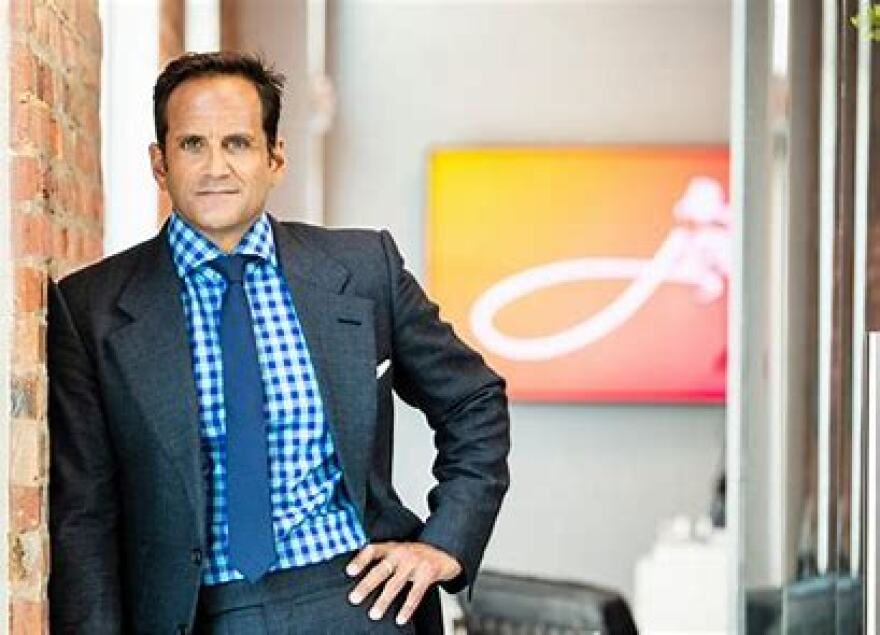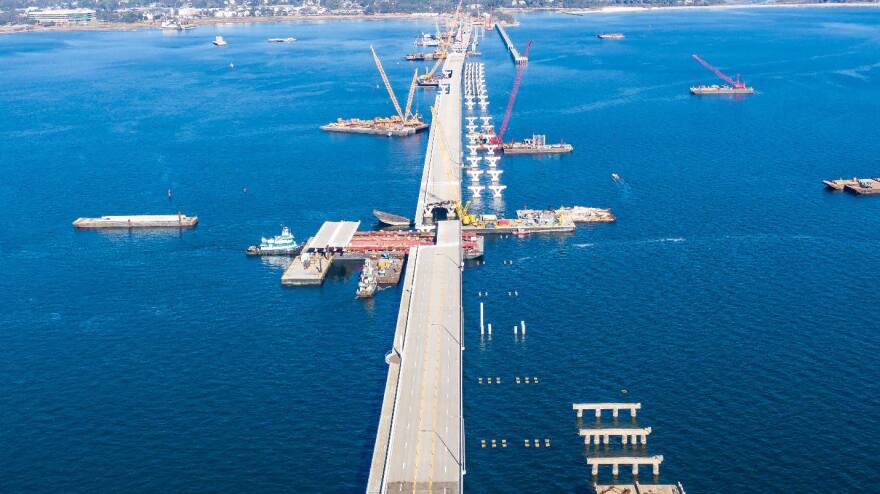As we observe the first anniversary of Hurricane Sally, here’s an update on the lawsuit involving 3-Mile Bridge builder Skanska USA and their runaway construction barges.
About two dozen Skanska barges being used in construction of the new Three Mile Bridge broke their moorings, when Sally made landfall in nearby Gulf Shores, Alabama. They were scattered around Pensacola Bay, damaging the bridge and rendering it impassable for nine months. Other loose barges damaged private property in the area.
“Those facts alone, as a lawyer, make you want to look and see if there was something that could have been done differently, that we should look into. So, that was enough for me to want to look into this situation,” said Pensacola attorney Joe Zarzaur, speaking last September.
He represents some of 1,000 claimants who contend Skanska was negligent by not properly conducting its plan to secure the barges prior to Sally.
“I believe that [the court] set a new scheduling order; they left a lot of wiggle room in there because they weren’t sure about whether or not they were going to proceed. But the court did go ahead, I think, and set a trial date later this year.”
One year after Sally, trial was set to begin this week in U.S. District Court in Pensacola, but Skanska’s counsel, many of them based in New Orleans, successfully argued that Hurricane Ida’s impact earlier this month, resulting in dead phone lines and spotty Internet, has hampered their preparation.
“The court pretty quickly granted their motion and there wasn’t a lot of resistance for obvious reasons,” Zarzaur said. “The court has gone ahead and entered a new pretrial order that attempts to try to get everything concluded by the end of the year. Our hope is that the whole thing is done by the end of the year.”
Compensation is being sought for residents forced to commute via the Garcon Point Bridge, resulting in higher traffic costs, and for those whose businesses suffered losses from a lack of passerby traffic that brings in customers.

The additional time, says Zarzaur, will be used by both sides to strengthen their cases. There’s no such thing as over-preparing for a trial, he adds. It’s also given the court a change to rule on numerous pre-trial issues — such as missing cellphone data.
“The fact that the judge ruled that the cellphone data had been intentionally deleted,” said Zarzaur. “Or make to where you couldn’t recover it; and the claimants were entitled to a presumption that that was done to avoid the discovery of relevant text messages and cellphone logs, that would have been detrimental to Skanska.”
Skanska could get out from under that limitation under maritime law, if it can prove the barge owners and operators knew, or should have known, of some defect in managing the vessels. A preliminary ruling said that maritime law may apply, but a final decision has not yet been reached.
“The reason we’re in federal court is that Skanska moved to have federal maritime law apply; because if federal maritime law applies, and not state law, then all of the economic loss claims that were not directly impacted by the barges — those claims go away.”
The first question to be answered by the court, is whether maritime law does, in fact, apply.
“And if it applies, for those who had a barge directly to their property, those folks are still going to still have the right to argue the limitation, under federal maritime law,” Zarzaur said. “Which basically says you cannot hold a ship owner more responsible financially, than the value of the vessel involved.”
A spokeswoman for Skanska USA declined a request for an interview, citing the ongoing case. But in a written statement, the firm said it produced about 150 million pages of documents for discovery, and that the court found “no direct evidence of bad faith on Skanska’s part.”

